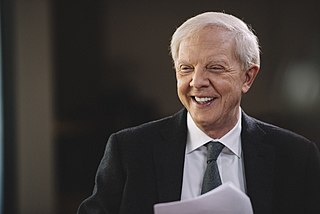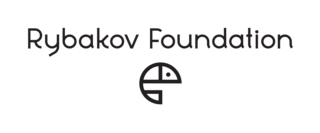The DARPA Grand Challenge is a prize competition for American autonomous vehicles, funded by the Defense Advanced Research Projects Agency, the most prominent research organization of the United States Department of Defense. Congress has authorized DARPA to award cash prizes to further DARPA's mission to sponsor revolutionary, high-payoff research that bridges the gap between fundamental discoveries and military use. The initial DARPA Grand Challenge was created to spur the development of technologies needed to create the first fully autonomous ground vehicles capable of completing a substantial off-road course within a limited time. The third event, the DARPA Urban Challenge extended the initial Challenge to autonomous operation in a mock urban environment. A more recent Challenge, the 2012 DARPA Robotics Challenge, focused on autonomous emergency-maintenance robots, and new Challenges are still being conceived.

The Indian School of Business (ISB) is a private business school established in India in 2001. It has two parallel campuses in India, in Hyderabad (Telangana) and Mohali (Punjab). It offers certificates in various post-graduate management programs. ISB became the 100th Triple Accredited business school in the world upon achieving AMBA accreditation on 12 May 2020.

A hackathon is an event where people engage in rapid and collaborative engineering over a relatively short period of time such as 24 or 48 hours. They are often run using agile software development practices, such as sprint-like design wherein computer programmers and others involved in software development, including graphic designers, interface designers, product managers, project managers, domain experts, and others collaborate intensively on engineering projects, such as software engineering.

Bertil Eric Hult is a Swedish billionaire, known for founding educational and language school company EF Education First in 1965, and for being the patron and namesake of Hult International Business School. In 1971, he moved from Sweden to Germany, and in 1977, he established EF's head office in Lucerne, Switzerland, where he now lives. He served as the company's CEO until 2002 and as chairman until 2008. Today, he is semi-retired. Two of his four sons serve in the company; his oldest son, Philip Hult, as company chairman and his third son, Edward Hult, as CEO of North America. Under Bertil Hult's supervision, EF grew to a multi-billion dollar corporation with more than 40,000 employees in 53 countries.

Acumen is a nonprofit impact investment fund focused on investing in social enterprises that serve low-income individuals in the United States. Acumen was founded in April 2001 by Jacqueline Novogratz. It aims to demonstrate that small amounts of philanthropic capital, combined with business acumen, can result in thriving enterprises that serve vast numbers of the poor. Over the years, Acumen has invested $115 million in 113 companies and has had a successful track record in sourcing and executing investment opportunities in the clean energy, health care and agriculture sectors.

Room to Read is a global non-profit organization headquartered in San Francisco, California. The organization focuses on working in collaboration with local communities, partner organizations and governments to improve literacy and gender equality in education.

The Scheller College of Business is the business school at the Georgia Institute of Technology, a public research university in Atlanta, Georgia. It was established in 1912, and is consistently ranked in the top 30 business programs in the nation.

The Citizens Foundation (TCF) is a non-profit organization, and one of the largest privately owned networks of low-cost formal schools in Pakistan. The foundation operates a network of 1,833 school units, educating 280,000 students through over 13,000 teachers and principals, and over 17,400 employees. Approximately 94% of the foundation's expenditure is allocated to the Education program. In addition, TCF also conducts a literacy and numeracy skill development programme in communities linked to its schools which has taught reading and writing to over 160,000 adults.
Global Entrepreneurship Week (GEW) is an international initiative that introduces entrepreneurship to young people in six continents. GEW emerged in 2008 as a result of Enterprise Week UK and Entrepreneurship Week USA 2007. Since its creation, more than 10 million people from roughly 170 countries have participated in entrepreneurship-related events, activities and competitions during GEW.

Hult International Business School is a private business school with campuses in Cambridge, London, San Francisco, Dubai, New York City, and Shanghai. Hult is named for the school's benefactor Bertil Hult.

The Faculty of Engineering is one of six faculties at the University of Waterloo in Waterloo, Ontario, Canada. It has 8,698 undergraduate students, 2176 graduate students, 334 faculty and 52,750 alumni making it the largest engineering school in Canada with external research funding from 195 Canadian and international partners exceeding $86.8 million. Ranked among the top 50 engineering schools in the world, the Faculty of Engineering houses eight academic units and offers 15 bachelor's degree programs in a variety of disciplines.

EF Education First is an international education company that specializes in language training, educational travel, academic degree programs, and cultural exchange. The company was founded in 1965 by Bertil Hult in the Swedish university town of Lund. The company is privately held by the Hult family.

Prime Minister's Youth Programme was an initiative by the former prime minister of Pakistan Nawaz Sharif established in 2013.The purpose of the program was to ensure the provision of quality education, and meaningful employment to the youth through integrated, sustainable youth initiatives. The program provided government-subsidised business loans of up to 25 million rupees, under three tiers: first-tier for 10000 to 1 million, the second tier for 1 million to 10 million, and the third tier for 10 million to 25 million. The program also provided a skills scholarship program, a talent hunt for youth sports, and a national youth council.
A Challenge Fund is a competitive financing facility to disburse donor funding for international development projects, typically utilizing public sector or private foundation funds for market-based or incentive driven solutions. As Irwin and Porteous (2005) observed, "In practice, the objective of a challenge fund is to provide the smallest possible financial contribution to a socially worthwhile project consistent with making it less risky and more financially sustainable to the private promoter." Applicant qualifications differ widely among challenge funds, but typically focus on non-state actors.
Shining Hope for Communities (SHOFCO) is a grassroots movement based in Nairobi, Kenya in urban slums providing services, community advocacy platforms, and education and leadership development for women and girls. SHOFCO serves more than 350,000 urban slum dwellers in 10 slums across three cities in Kenya.
Philip E. Auerswald is an American author, economist, and cofounder and coeditor of Innovations (journal). His most recent book, The Code Economy: A Forty-Thousand-Year History, explains how code has been a key driver of human development.
Pramath Raj Sinha is an entrepreneur, institution-builder, academic, executive, and philanthropist. He was the Founding Dean of Indian School of Business (ISB)., and one of the Founders of Harappa Education, 9.9 Group, Ashoka University, Vedica Scholars Programme for Women, and Naropa Fellowship. Sinha was formerly the CEO of Ananda Bazar Patrika (ABP) Group, a leading media company, and a Partner at McKinsey & Company.
Stephen Hodges is an educator who was President of Hult International Business School and also Chairman of the Hult Prize. He was President of Hult International Business School from 2006-2022. Under his leadership Hult grew into a leading global business school known for its innovation. Today, Hult has campuses around the world, over 5,000 degree students, over 6,000 executive students annually and is consistently ranked in the top 50 business schools in the world. In 2018 Hult became the only triple-accredited US business school.

The Rybakov Foundation is a private philanthropic organization, founded by Ekaterina Rybakova and Igor Rybakov in 2015. It has a number of national and international projects and is best known globally for the Rybakov Prize, an award for philanthropists in education.

Global Goals Week is a shared commitment between a coalition of over 160 partners across all industries, which mobilizes annually in September to bring together communities, demand urgency, and supercharge solutions for the Sustainable Development Goals (SDGs). It was founded in 2016 by the United Nations Foundation, Project Everyone, and the United Nations Development Programme (UNDP). It is timed to coincide with the UN General Assembly "High-Level Week" in New York. The week includes events, summits, conferences, forums, workshops, pledges, and other activations in New York, around the world, and online. It usually runs alongside Climate Week NYC, the annual conference of Goalkeepers, Bloomberg Global Business Forum and many other high-level events.















